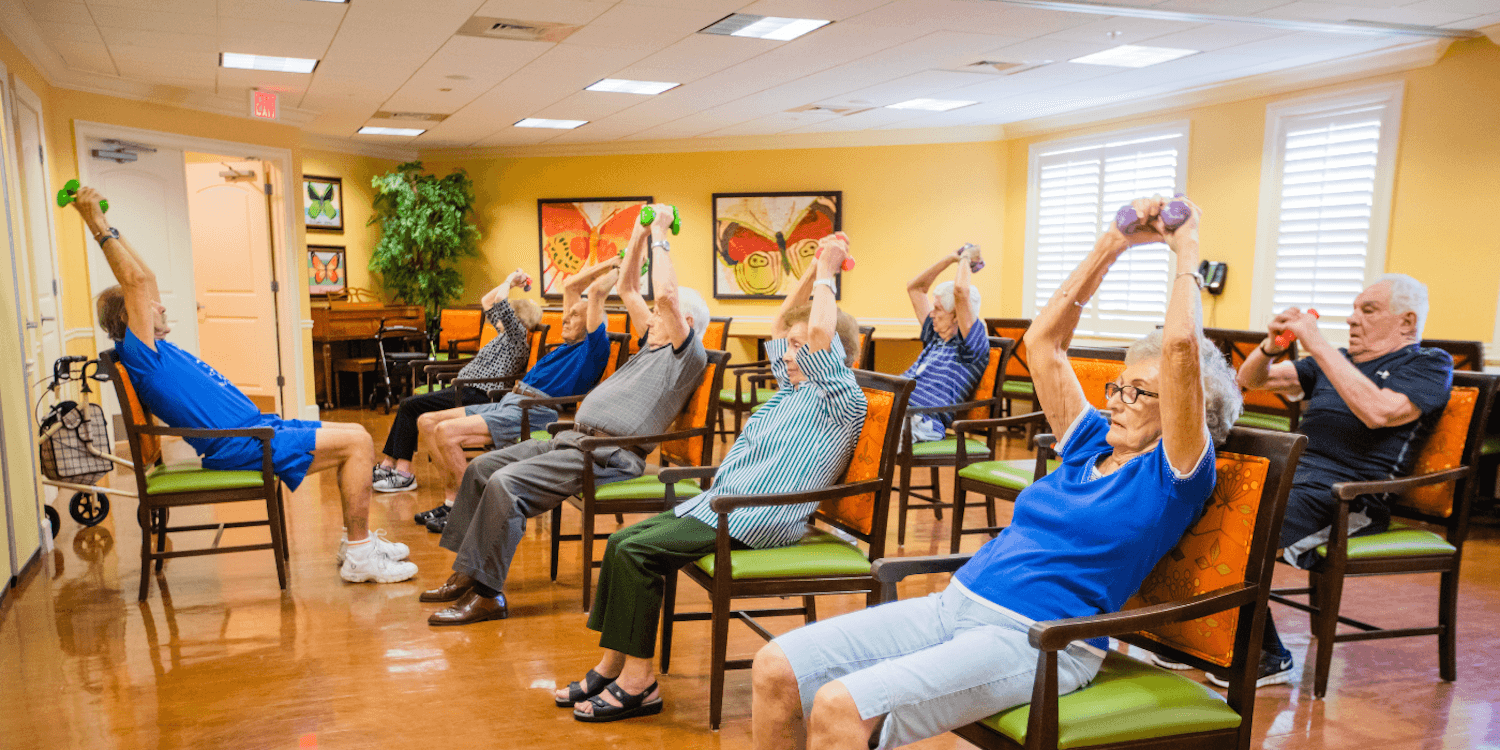Enhancing Quality of Life with Trustworthy Alzheimers Care Charlotte Programs
Enhancing Quality of Life with Trustworthy Alzheimers Care Charlotte Programs
Blog Article
Creating a Safe and Encouraging Atmosphere for Alzheimer's Care
The production of a helpful and safe setting for individuals with Alzheimer's is paramount in boosting their quality of life. This entails not only physical adjustments within the home, such as lessening hazards and including familiar components, however also the application of structured regimens and significant tasks that accommodate their cognitive demands. Recognizing the emotional and emotional measurements of care can substantially impact their feeling of security and connection. Discovering these multifaceted approaches can expose vital insights right into efficient caregiving approaches that might transform the daily experiences of both individuals and caretakers.
Recognizing Alzheimer's Demands
Regularly, people with Alzheimer's condition show a variety of requirements that need tailored methods to care. As the condition progresses, cognitive decline manifests in various means, influencing memory, thinking, and even the capability to carry out daily tasks. Caretakers need to acknowledge these advancing requirements to supply suitable support and ensure a better of life for those impacted.
One vital element of understanding Alzheimer's needs is recognizing the relevance of regular and experience. Individuals frequently find convenience in well-known patterns, which can lower anxiousness and confusion. Caregivers need to make every effort to develop structured daily routines that integrate meaningful tasks straightened with the individual's passions and abilities.
Furthermore, reliable interaction is paramount. Individuals with Alzheimer's may struggle to express themselves or comprehend intricate language. Caretakers need to use easy, clear language, usage non-verbal cues, and technique active paying attention to foster understanding and link.
Lastly, emotional and social needs can not be forgotten. Offering possibilities for social interaction and preserving partnerships can substantially boost emotional wellness. Caretakers ought to motivate engagement in neighborhood tasks or family events, advertising a feeling of belonging and purpose. Comprehending these varied demands is necessary for developing a supportive care setting.
Creating a Safe Home
Producing a safe home for individuals with Alzheimer's condition is crucial to decreasing dangers and advertising self-reliance. Ensure that paths are clear and well-lit, as appropriate lighting minimizes disorientation and enhances wheelchair.
Incorporating flexible features is additionally important. Install grab bars in shower rooms and near stairs, and consider utilizing non-slip floor coverings in wet locations. Additionally, using contrasting colors for floors and wall surfaces can aid in identifying spaces, assisting to mitigate confusion.
Knowledge is essential for people with Alzheimer's. Individualizing the atmosphere with acquainted items and pictures can reinforce a sense of belonging and security - Alzheimers Care Charlotte. It is likewise advantageous to have actually a designated area for day-to-day activities, such as analysis or crafting, which can provide structure to their day
Last but not least, carrying out a secure outside room permits secure exploration while linking with nature. By attentively developing the home environment, caregivers can considerably enhance the top quality of life for individuals coping with Alzheimer's disease.
Enhancing Communication Abilities

Non-verbal interaction, including facial expressions, motions, and touch, plays a vital function in communicating empathy and understanding. Maintaining eye call and a tranquil temperament can improve the convenience level of the person, advertising a feeling of safety and security.
Moreover, it is essential to exercise active listening. This entails being completely present, revealing persistence, and allowing the individual to reveal themselves without interruption. Repeating may be essential; caretakers should be prepared to take another look at subjects or questions, as individuals with Alzheimer's might have problem with memory recall.
Additionally, making use of visual help or hints, such as photographs or acquainted objects, can promote acknowledgment and engagement. Inevitably, improving communication abilities learn this here now is about constructing count on and developing an atmosphere where people feel listened to, valued, and comprehended, therefore enhancing their top quality of life.
Motivating Social Interaction
Cultivating meaningful social communications can considerably enhance the wellness of people with Alzheimer's disease. Involving with others not just helps battle sensations of isolation however also promotes cognitive feature and emotional health and wellness. Structured social tasks, such as group arts, crafts and games, or songs treatment, create opportunities for residents to get in touch with peers and caretakers, which can lead to enhanced mood and minimized anxiety.
Creating an inviting atmosphere that urges socializing is crucial. This can be achieved by organizing common areas that assist in communication, such as relaxing seating locations or task areas. In addition, including culturally pertinent and acquainted tasks can urge and trigger memories engagement, permitting people with Alzheimer's to feel more connected to their past experiences.
Additionally, caregivers should be educated to identify and advertise social engagement among homeowners. By focusing on social communication, we can substantially enrich the lives of those living with Alzheimer's, fostering a feeling of community and belonging.
Sustaining Caretaker Well-being

To support caregivers, companies need to offer routine training and instructional resources to improve their understanding of Alzheimer's condition and caregiving techniques. Supplying accessibility to respite treatment services allows caregivers to take needed breaks, reducing tension and tiredness - Alzheimers Care Charlotte. Furthermore, fostering a community through support system can help with emotional sharing and the exchange of functional suggestions amongst caretakers, developing a network of common assistance
Psychological wellness sources, such as therapy solutions, can additionally be essential in dealing with the emotional toll caregiving can take. By prioritizing caregiver well-being, we develop an even more lasting caregiving setting that not just benefits the caregivers themselves but also enhances the overall quality of treatment obtained by people with Alzheimer's. Inevitably, sustaining caregivers is a necessary part in promoting a efficient and compassionate care setup.
Verdict
Finally, the this content development of a supportive and secure setting for people with Alzheimer's is necessary to improving their high quality of life. By prioritizing safety via thoughtful layout, promoting emotional wellness with familiar aspects, and promoting involvement via structured regimens, caretakers can dramatically affect the total experience of those influenced by this condition. Supporting caretaker well-being is crucial, as it eventually contributes to a much more thoughtful and efficient treatment environment.
Rep may be needed; caregivers must be prepared to take another look at topics or inquiries, as people with Alzheimer's may have a hard time with memory recall.

Report this page